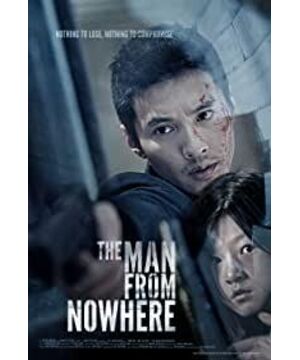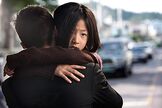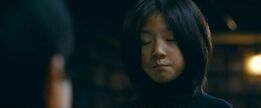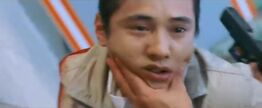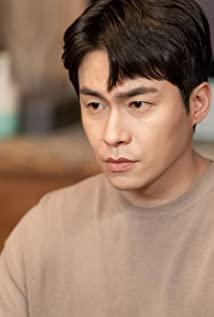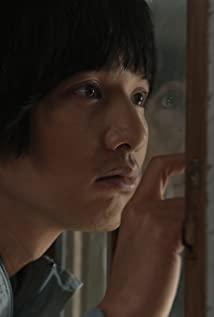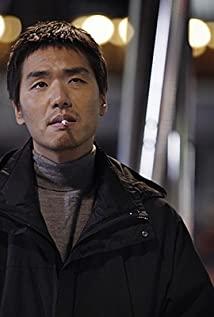Text / Gaze at Seven Strings For some reason
, the instructors in literary and artistic works are always devastated. For example, Lu Jingnan in "Tibetan Code" is unlovable, and in "Love For You" Lin Zhibing, who was born in 2008, suffered to death, while Cha Tae-sik in "The Lonely Agent" was a serious PTSD patient.
PTSD is "post-traumatic stress disorder", which is a mental disorder caused by sudden and major malignant events that make patients too fearful and shocked, resulting in psychological imbalance. Cha Tae-sik in the film is an instructor of the Marine Corps' assassination team. In an enemy's revenge operation, his pregnant wife was instantly killed by a heavy truck. Cha Tae-sik witnessed the whole process with his own eyes and was heartbroken.
At this time, he showed obvious clinical symptoms of PTSD. He was unsmiling, isolated, refused to communicate with anyone, had long hair, despaired of life, and was decadent from the inside out. He opened a pawn shop with a dark and narrow facade. Neighbors all thought he was a bad person and deliberately kept it secret. No one paid any attention to him. Only the little girl Xiaomei often ignored his indifference and took the initiative to approach him and talk to him.
Xiaomei has no father, and her mother is a dancer in a nightclub. She is addicted to drugs and has a chaotic life. When Xiaomei was born, she was called "the trash can" by her relatives. No one disciplines Xiaomei, she has a pure heart, but she can steal things. Likewise, no one wanted to pay attention to Xiaomei, even looked down on her and bullied her. The reason why Xiaomei is willing to approach Cha Tae-sik is because although Cha Tae-sik is indifferent, he has never shown disgust towards her. This is too rare for Xiao-mei, so it is precious.
Xiaomei flips through other people's schoolbags and is beaten and scolded by the other's parents who mistake them for stealing. The police intervene, and Cha Taezhi happens to pass by. Xiaomei identifies Cha Taezhi as her father, and hopes that Cha Taezhi can help her deal with the matter, because her mother confessed that she had trespassed. Misfortune is not allowed to find her. Cha Tae-sik is indifferent, and Guan Zi walks away. Xiao-mei feels that she has been abandoned again and is very sad. Cha Taizhi took the initiative to go to the stationery store to find Xiaomei, Xiaomei deliberately stole something in front of him, and then ran away, the expression on her face touched Cha Taizhi, which made him feel guilty. From this moment on, he and Xiaomei The friendship between the United States takes a turn.
From a psychological point of view, the essential reason for Cha Tae-sik's indifference and autism is guilt. His wife died tragically because of his own involvement. As a top expert, he was also on the scene. He was caught off guard and could do nothing. He watched his wife die. There was a gap between his "ideal self" and "real self", and his psychology was imbalanced. He questioned himself, felt that the tragedy was entirely his own, and doubted his own work and ability. Although he longed for emotions, he was afraid of them, and feared that he would accept others' emotions, which would bring disaster to others; at the same time, he also punished himself. means inside.
Cha Tae-sik actually always felt warm when Xiao-mei approached, and subconsciously regarded her as a daughter. But he has always restrained himself from showing this emotion. The incident of stealing the schoolbag triggered Cha Tae-sik's guilt towards Xiao-mei. The moment he was moved by Xiao-mei's statement, the guilt towards Xiao-mei and the guilt towards his wife overlapped, and the urgency to protect and compensate for his wife was instantly transferred to On Xiaomei.
Xiaomei's mother stole the white powder and was hunted down by the underworld. Xiaomei was kidnapped because of this. When Cha Taezhi found out, she became emotional and was afraid of learning about Xiaomei's death again. Therefore, he was instructed by the underworld to send white powder. In the process, because he believed that the underworld would release Xiaomei after he completed the task, he was still in a state of avoiding his old life (this is also one of the symptoms of PTSD). Zuo himself does not know any martial arts. Even if he is beaten to death by a group of underworld gangsters and vomits blood, he is not willing to become the old self anymore, because he feels that he is a person with no tomorrow, and life or death really doesn't matter.
He was thrown off a high-rise building, and when he saw the underworld leader running away under the police's roundup, he remembered that if the leader ran away, who would prove that he had completed the task, and Xiaomei could not be saved, so he grabbed the car and chased after the leader. Intercepted, but accidentally found the body of Xiaomei's mother in the stolen car. His original nightmare unfolded before his eyes again, he didn't struggle at all, let the police detain him, and when the police suspected him of being the murderer, he didn't say a word or justify.
In front of him, the police said that Xiaomei’s mother’s valuable organs had been removed, and they showed him the items that the police had found from Xiaomei’s house. Cha Taizhi’s fear of Xiaomei’s ending exceeded his fear of the past, which was equivalent to psychological The first stage of treatment: face the past, re-accepting yourself.
Cha Tae-sik regained his confidence. He defeated the 6 police officers left behind in only 4 minutes and 30 seconds, took the information of the underworld leader, and began to trace the whereabouts of Xiaomei.
During this process, Cha Tae-sik recovered little by little the way he felt when he was performing tasks in the past, scouting, inquiring, tracking, and avoiding, and no longer immersed in the sadness of the past. Saving Xiaomei has become his new life goal, and he no longer thinks he is a person with no tomorrow. Only if he lives well in tomorrow, can Xiaomei live well in tomorrow.
This is the second stage of psychotherapy: rediscovering the feeling of being needed by others. Why do people live? People act in groups and cannot live alone. As the strongest among the strong, Cha Tae-sik has always felt strongly that he is needed by others, and that his outstanding ability can easily achieve goals that others cannot. Tae-sik had doubts about himself, which led to psychological problems. During the investigation, Cha Tae-sik won time and time again, and the doubts about him gradually disappeared.
This healing phase ends after Che Tai Vegetation is wounded by another gangster killer.
Cha Tae-sik was bare-handed, while the other party held a pistol. Cha Tae-sik was seriously wounded and went to his old friend for help. He is willing to accept help from friends, indicating that the avoidance symptoms have disappeared. When his friend helped him take out the bullet, he remembered the scene of his wife being killed again and again, but at this time he had become rational and realized that under the circumstances at the time, it was not his fault that the tragedy could not be avoided, just like this time. Being shot is not because you are inferior to the other party, but because of objective conditions.
The days of recuperation are the third stage of treatment. Cha Tae-sik feeds stray dogs, and the feeling of love is re-cultivated. He cut off his long hair, put on his old attire, asked his friends to provide guns, and conceived a plan of revenge and salvation. The cool and meticulous assassin is back.
The fourth stage is the healing stage. At this point the film reaches its climax. Cha Tae-sik successfully found the gang's den, blew up the underground white powder factory, killed the younger brother of the gang leader, and rescued a group of children. Afterwards, he broke into the gang base camp alone. The idiot, the gang leader, threw Xiaomei's two eyeballs to Cha Taiji and told him that Xiaomei was dead, which completely angered him. Cha Tae-jin slaughtered all the people in the black nest. In the end, when the gang leader was killed and everything calmed down, Cha Tae-jin was completely powerless and fell into despair again, ready to commit suicide.
Suicidal mentality arises from an extreme lack of efficacy. In other words, Cha Tae-sik's psychology gradually returned to normal, thinking that he could rescue Xiao-mei with his own abilities, but Xiao-mei was dead, and his efforts were once again in vain, and the expected results could not be obtained. Coincidentally, he felt that there was no point in living any longer, and he no longer had any purpose in life.
If the situation does not change, this psychotherapy will be a failure and fall short. Fortunately, Xiaomei, who was safe and sound, reappeared, bringing the treatment to a perfect end.
When Xiaomei asked, "Uncle, are you here to save me?" Cha Taizhi put his right hand holding the gun behind him, took a step back, and told Xiaomei to "don't come here, there is blood". When Xiaomei jumped into his arms and cried, he wanted to stroke Xiaomei's hair, but he didn't dare to let it go because her hands were stained with blood. This detail appropriately shows Cha Tae-sik's psychological panic. He feels that all the blood and blood should be borne by himself, and Xiaomei and his wife should be pure and flawless.
In the final scene of the film, Cha Tae-sik buys a new schoolbag and new stationery for Xiao-mei, saying goodbye to Xiao-mei. He talked about the incident of stealing the schoolbag: "...Actually, I wanted to say that I knew you, but I pretended not to know you." These simple words have far-reaching meanings, which made Cha Tae-sik express his entangled heart. He asked Xiaomei: "Hug Uncle!" This scene once again echoed that of his wife crying with joy when she found out that she was pregnant. The scene of him embracing his wife and the ultrasound photos overlapped. In the heart of Cha Tai value, he always thought that his wife's death was the cause of his death. He caused it by himself, his wife should resent him, and Xiaomei's surviving and hugging represent his wife's forgiveness for him. At this point, Cha Taizhen's heart has been completely opened, and the treatment is over. The film also ended in tears of relief from Cha Tae-jin.
The above is a psychological interpretation of the protagonist Cha Tae-jin from the perspective of psychoanalysis. Let's talk about the actors and editing of this film.
Yuan Bin is undoubtedly the highlight of the film. Originally, my impression of Yuan Bin had always been the rich man in "Blue Life and Death", but this performance made me look at it with admiration. Smart actors will seek a breakthrough in the play. It is said that the protagonist of this film was not originally him, but Yuan Bin fought for it from the director himself. Due to the needs of the role, Yuan Bin is silent and expressionless most of the time in the film, but it is obviously impossible to be expressionless forever. Yuan Bin's approach is to express his emotions through various eyes, which is a very test of acting skills. I always remember the classic expression of Chow Yun-fat looking back when he was hunted down and getting a large gun in "The True Color of a Hero". That look contained too many things. Although Yuan Bin has not reached that level, he is very close. Especially at the end of the film, Yuan Bin's pity for the children whose organs were taken alive in vain, and the ruthlessness in chasing the gang leader were all reflected in his expressionless eyes.
In the film, Yuan Bin has three facial twitching expressions, once in a confrontation with a gangster killer in a nightclub, when he was wounded by a gun; once on the phone, he whispered to the gang leader "I want you to know what there is no tomorrow" The last time was in the gangster's den, and the leader threw him a long transparent tube containing "Xiaomei" eyeballs. Aesthetically, the facial twitches are ugly, but combined with the plot in the film, these twitches are just right to show the ruthless and vicious character of the protagonist. If it is an actor who lacks expressiveness, it will either become a facial paralysis, or it will be too exaggerated to appear fake. Yuan Bin can have this skill, and he will have a bright future in the future.
Different from mainstream spy films, which all have glamorous heroines, the heroine of this film is an ignorant little girl, but the performance of this little actor is also very tense and natural, not exaggerated or artificial, more than that The police captain is too strong. That captain knew how to show cool with a crooked mouth and an inexplicable smile, and he didn't care how big or small his own eyes were.
There is only one supporting role that impresses me, that is, a gangster who pretends to be a disabled person at the airport. His performance is only a few shots, but it is natural and smooth, and the shot is very good.
The overall tone of the film is dark, which fits the mood of the protagonist. The editing style is a little blunt, but it's still neat, at least not procrastinating. Especially the killing of the gang leader at the end was really good, and the main actor Yuan Bin did a good job. Although it is simple, it has strong visual and psychological impact, which is rarely seen in general spy movies. .
The dubbing is too disappointing, so I won't talk about the supporting roles. Cha Tae-jin's voice actor deliberately expressed his indifference with a low voice, but he lowered his head, especially in the later stage of the film, Cha Tae-jin's voice actually did not fluctuate. Too fake. The little girl's voice is pretty good.
The Chinese translation of the film "Lonely Agent" is too common, not as good as the other translation "Uncle", which may be one of the reasons for the low domestic box office. I heard that it not only topped the box office in South Korea, but also surpassed "Inception" for a time. It can be seen that a commercial agent film with appropriate emotional elements still has prospects.
Finally, I raised my paws and asked the question: The gang leader was hiding in a car equipped with bulletproof glass. To kill him, Cha Tae-wah put the pistol on the front windshield and fired continuously at one point, about six or seven bullets. It looks like a hole is punched in the glass. Is this really possible?
View more about The Man from Nowhere reviews


